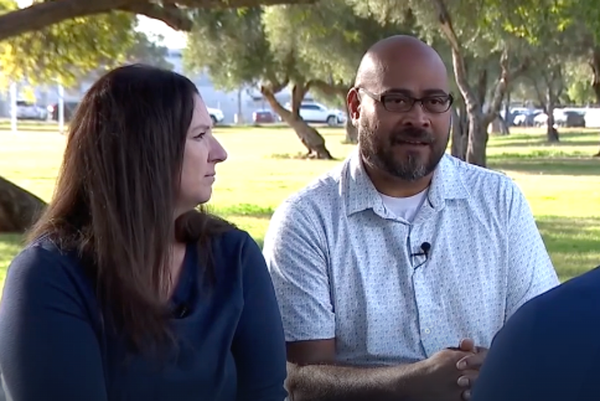Judy Blume is having a moment.
Yes, the 85-year-old American writer of coming-of-age classics is finally getting her dues, between an upcoming adaptation of Are You There God? It's Me, Margaret (starring Rachel McAdams and some seriously good 70s bangs) and a new documentary titled Judy Blume Forever.
Who is Judy Blume?
Blume burst onto the literary scene and captured the hearts and minds of youngsters across the globe when Margaret was published in 1970.
She would go on to write a string of children's and young adult classics, including Tales of a Fourth Grade Nothing (1972), Forever (1975) and Tiger Eyes (1981), as well as books for older readers, such as Wifey (1978).
Combined, her 29 books have sold more than 90 million copies worldwide.
ABC RN's Stop Everything! presenter Beverley Wang is not exaggerating when she says, "[Blume] is almost single-handedly responsible for the YA genre".
New documentary Judy Blume Forever delves into the writer's story, tracing how she evolved from an anxious Jewish child with a vivid imagination growing up in New Jersey, to a bored housewife making up stories to entertain her two young kids, to a badass divorcee literary titan — and these days, a retired writer running a busy bookshop in Florida.
Why do her books matter?
Does the phrase "We must, we must, we must increase our bust!" mean anything to you? Perhaps "Like my mother said, you can't go back to holding hands" feels more familiar.
The first comes from Margaret and the second from Forever, both books that took the trials and tribulations of young womanhood seriously and portrayed them in a fashion far more realistic than any middle grade books that had come before.
"[Her books] dare to acknowledge the existence of sex, of menstruation, of masturbation … and questioning religion. It's all about the internal lives of young people," Wang explains.
Blume particularly managed to capture that awkward in-between stage of being 11-12 years old and having one foot in the door of childhood and the other in adulthood.
"The powerful thing about Judy Blume is that she has this ability to really portray the interior lives of young people … and she describes their concerns and their desires without judgement," says Wang.
Davina Pardo, who co-directed Judy Blume Forever, told Stop Everything!: "I got my period when I was 10 … to open up a book like Margaret and be inside the head of a girl who wanted this thing so desperately that I was so ashamed of … [and] to be part of a conversation with Margaret and her friends that I wasn't having in my own life, was so incredibly comforting."
How did Blume write through the eyes of young people so well?
Blume has impressive powers of recall when it comes to her own childhood.
"[And] that memory extends to feelings," explains Pardo.
"She remembers what it feels like to be a kid, to feel like your parents don't understand you, or your sibling is driving you crazy, or your body is confusing … She's able to tap into those feelings seemingly so easily. And she pours that empathy and that memory onto the page in a way that really resonates with kids."
Why were these books so controversial?
Before Blume, young people rarely had a chance to read about the issues directly impacting them. Blume took the taboo — birth control, puberty, bullying, divorce — and made it mainstream.
Wang says: "Looking back … [at] the pre-internet era that she was writing in and the forthrightness of her putting that all in books for kids, that was incredibly radical, then and even now."
No wonder her books became coveted items passed between friends.
But those themes were also why Blume novels were banned in libraries and schools in some southern states of the US.
Judy Blume Forever co-director Leah Wolchok grew up in one of those states in the 80s, when Blume books were banned.
She told Stop Everything!: "We were not supposed to be reading books about a girl who was questioning God, or wanting to get her period or grow boobs … [or] who was touching herself.
"I wish I had read those books as a kid. I think I would have felt a lot better about myself had I read them."
So why has there never been a documentary about this legend before?
Pardo says: "I think that Judy wasn't ready to do it until very recently. She's been so incredibly busy creating this body of work … and then more recently running the bookstore.
"Once she came to terms with the idea of doing this [Margaret] adaptation and doing a documentary, it all kind of happened at the same time."
Pardo describes convincing Blume to be in the documentary as a bit of a courtship, and says that Blume had said recently: "I want to be here to see them [these projects]. I want them to happen while I'm alive and I can be part of the process."
What do we learn from the documentary?
Wolchok says: "I think one of the biggest surprises [for us as filmmakers] was realising the depth of her connection to her readers."
From the moment Margaret hit the stands, Blume started receiving thousands of letters from fans. Blume would often write back, entering into decades-long correspondences with some readers, including two who appear in the documentary.
Pardo says: "I knew that the books were groundbreaking in so many ways. I didn't know how groundbreaking she was in her personal life."
"She pushed back against societal expectations in so many ways throughout her life: in deciding to become a writer … [and] breaking into this male-dominated industry, and leaving a marriage she wasn't happy in, even though divorce was sort of taboo at the time."
In the face of death threats (she once received 700 in one day, and was the subject of a Phyllis Schlafly pamphlet), Blume was an outspoken activist against censorship and book banning.
Amidst a renewed wave of book banning in the US (Forever was banned in Blume's home state of Florida again this year) she continues fighting, and is working with organisations including the National Coalition Against Censorship.
Wolchok says: "Writers who are Black or brown writing characters who are Black or brown, or writers who are queer or trans writing characters who are queer or trans, those are the books that need most to be out in the world right now; that need most to be on the shelves of our classrooms, of our libraries. And those are the books that are being challenged, and Judy is fiercely defending those authors."
The documentary also features interviews with writers and actors Molly Ringwald, Lena Dunham and Anna Konkel (Pen15 co-creator), who are all hardcore Blume fans.
"Blume laid the groundwork for the work that they're all doing. Not only the questioning and the feelings that their characters had, but also their imperfections, their mistakes," says Wolchok.
Where can I watch Judy Blume Forever?
It's available to stream on Prime Video.
What about Rachel McAdams's haircut and the new Margaret movie?
While there have been some small screen adaptations of Blume's books in the past, this is the first big-budget feature film adaptation of Margaret, her most beloved book.
The film — which stars Rachel McAdams (and her very in-fashion shaggy 70s haircut), Kathy Bates and Abby Ryder Fortson as the titular pre-teen — received glowing reviews (though interestingly, it has bombed at the US Box Office).
Lauren Mechling in The Guardian wrote: "The film is an entertaining comedy that also happens to be a stunning evocation of the fear and yearning that come with standing on the precipice of adulthood."
With reviews like that, we're eagerly looking out for an Australian release date.







